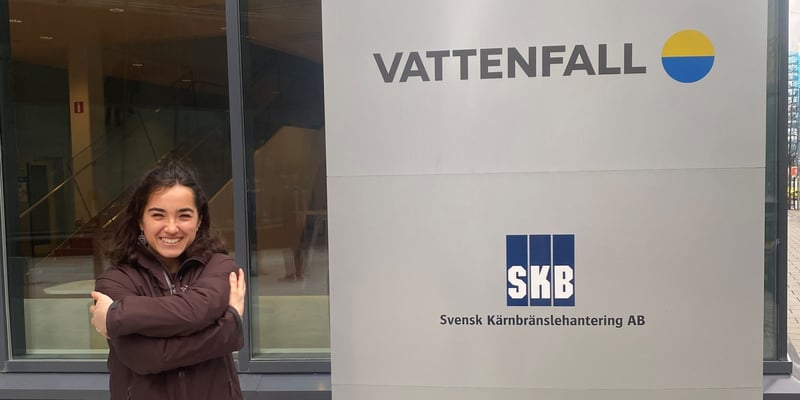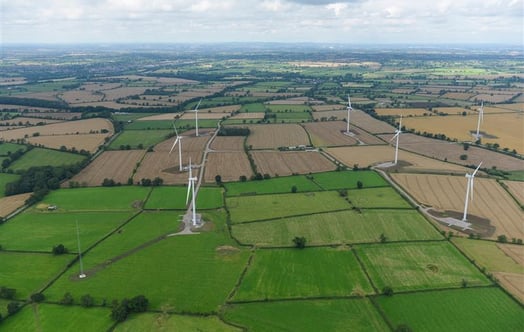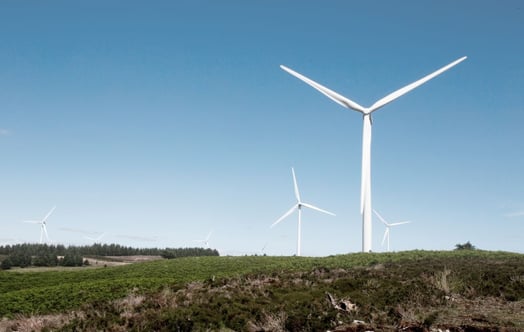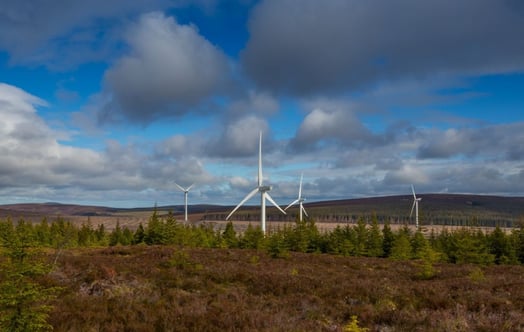Celebrating International Women's Day with Vattenfall Heat UK
In honour of International Women’s Day, we asked Hannah Wright, a Strategist within Vattenfall’s Heat Team and part of Vattenfall’s International Trainee Programme, to reflect on the importance of representation, equality and the collective need to #EmbraceEquity.

Hannah Wright, Strategist at Vattenfall Heat UK and part of the International Trainee Programme
How long have you worked at Vattenfall? And what made you want to work in the energy industry?
Six months! And what an absolute bobby dazzler it’s been. I graduated from Warwick University with a Masters in Humanitarian Engineering and a keen interest in how to make cities cleaner, greener and more equitable places. My thesis was on urban heat planning in Khartoum, Sudan, and I became totally fixated on nature-based cooling strategies. My parents never want to hear about tree corridors again.
My first job was as a junior reporter covering the energy transition. Almost everyone I spoke to said pretty much the same thing: We’ve gone for the low hanging fruit in greening our electricity supply and now, we have to get homes off gas by decarbonising our heat supply. To me, it seemed like the most pressing & exciting area to work in within the energy transition.
What is Vattenfall’s International Trainee Programme and what made you apply?
Vattenfall’s International Trainee Programme spans one year and is comprised of two parts. The first part focuses on getting to grips with the job you were hired to do, which in my case is a role in Heat Strategy. The second part involves six months of seminars, professional development courses and training rotations across the rest of Europe, spread out over the year. I have always wanted to live and work abroad so the international element was a major bonus.
Given Vattenfall Heat UK’s city-level approach to low-carbon district heating, the role was a gorgeous collision of everything I cared about – advancing heat decarbonisation; improving energy security & equality; and working alongside local communities.
What would you say to other women considering a role within Vattenfall’s International Trainee Programme and energy in general?
Don’t sleep on it. Vattenfall has brilliant female representation at the executive level and the culture at Heat UK is one built on inclusion and trust. While it might sound like I have been successfully brain washed, I think my enthusiasm for the company stems from my experience of others that have totally, often painfully, missed the mark when it comes to building a positive company culture.
Once I understood what it was like to work for a company that cares about my wellbeing, and doesn’t treat me as a commodity, I easily arrived at the decision that I’m not sure I ever want to leave! And all women (and everyone else to be honest) deserve to feel that way about work.
What is your impression of Vattenfall with regards to diversity and inclusion and how does it compare to your experience of other workplaces?
Diversity, Equity & Inclusion (DEI) is omnipresent at Vattenfall. During my first week, I attended an Engineering Day with figures from across the industry. Despite being neither an engineer, nor fully confident on what a heat network even was at that point, my contributions were encouraged. People catered to my level of understanding in discussions, and consequently, I never felt reluctant to ask a question. At least half the afternoon was focused on strategies to boost diversity in the sector. This Engineering Day was no anomaly. I have now attended several similar events and I have always left feeling invigorated (not an emotion famously associated with conferences).
More recently, Vattenfall helped establish the Diverse Heat Network, which aims to attract a diverse workforce and ensure the sector is representative of society. Meike Imberg, our Diversity and Culture Manager, is another force for good. Meike is like a DEI Duracell bunny, channelling all her energy into making sure Vattenfall Heat is a diverse, inclusive and safe place to work.
Why do you think it’s important to celebrate International Women’s Day? What does it mean to you?
Gender inequality remains a pervasive issue. Around 7% of women in England and Wales still experience domestic abuse (especially when the football is on, which is sickening); the gender pay gap persists; and across the FTSE 250, there are still more CEOs named John than female CEOs. That’s not even half of it.
While some progress has been made in boosting female representation across business, politics, and education, only a small corner of society has reaped the rewards of that progress. Privileged white women, for example, are largely faring better in terms of gender equality than they were three decades ago. But the same level of progress cannot be seen among women of colour, women with disabilities, women within the LGBTQ+ community, female migrants, refugees, asylum seekers & others. Where inequalities intersect, the situation is much worse.
So, we need IWD for three reasons. First, we haven’t reached gender parity across the board; second, progress towards gender parity is not universal; and third, even if we had achieved those things, I don’t believe gender parity will ever be something we can just check off our list and be done with. IWD keeps the issue on the agenda.
The theme of International Women’s Day 2023 is “Embrace Equity” - what does this mean to you?
To me, equality means treating people the same. Equity, on the other hand, takes consideration of the different circumstances that might have affected an individual’s opportunities and experiences throughout life.
Embracing equity means affirmative action from employers, such as internships or mentoring programmes exclusively for women, or women of colour, for example. It means clearing the pathways for underrepresented groups to move up the ranks more easily. It might mean having a quota or setting and reporting on gender diversity targets.
How do you think more women could be encouraged to enter careers in energy?
In the short term, this could be achieved through several strategies: improving access to employment and financial resources; investing in education and skills development; creating valuable professional networks; establishing & implementing quotes to make women visible in leadership roles.
In the long term, increasing female representation requires systemic change to tackle the “ongoing persistence of specific forms of sexual harassment, and subtle but pervasive doubts about competence, intelligence, and skill that are unrelated to actual performance”.
Why do you think it’s important to have a gender-diverse workplace?
Workplaces are rooted in the communities they serve and must be representative of society. Diversity brings different perspectives which improves organisational problem solving and decision making. Female representation also improves collaboration by introducing different social skills and leadership styles. Then there is the fact that it is objectively the moral thing to do.
Why do you think it is important that more women take up careers in energy?
You can’t be what you can’t see, right?
Is there a specific woman who has positively impacted your career or influenced your career path?
Georgia Kremmyda, the Head of Civil Engineering at Warwick University had a big impact on my career path. Georgia set up the Humanitarian Engineering master's programme at Warwick and is leading national and international initiatives promoting sustainable development and equitable access to education in STEM. She’s absolute tonic.



